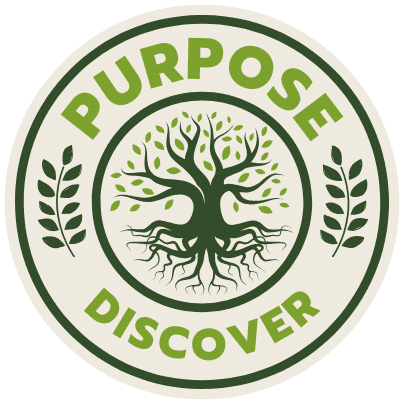There’s something deeply disorienting about waking up each day to the same routines, the same faces, the same small frustrations that nibble away at your sense of excitement. When life feels repetitive, like a broken record stuck on a loop, it’s easy to wonder if meaning is just a luxury reserved for those with more interesting schedules or bigger dreams. But here’s the secret: meaning isn’t something distant or grandiose; it often hides within the everyday, waiting to be uncovered and shaped by how we choose to show up.
Why does repetition feel so draining? Because it tricks our brains into a kind of autopilot, where the world blurs into a background hum and we lose that spark of noticing. When every day looks like the last, the moments all seem to merge into one long stretch of monotony. Your mind, starved for novelty, rebels with boredom or restlessness. That’s the itch that says, “Something’s off.” But craving newness alone isn’t the answer—meaning isn’t always about shaking things up with wild adventures or radical life changes.
Finding meaning when days feel like déjà vu is about changing your relationship with the routine, not necessarily the routine itself. It’s about layering your life with intention so even the mundane has weight. Think of it like this: you could eat the same sandwich every lunch, but if you pay attention to the textures, the flavors, even the memories it stirs up, suddenly that sandwich becomes an event, a small ritual that grounds you. That’s the tiniest example, but it scales up.
How do you start?
Creating a Personal Narrative
Every one of us carries an internal story about why we do what we do. When life is repetitive, it’s easy for that story to shrink, to become a bland explanation: “I’m just working, eating, sleeping, repeat.” But what if you rewrote the script? What if each task, no matter how small, was a line in a narrative you actually cared about?
For instance, washing dishes might feel like a chore, but it can also be a moment of mindfulness, an act of care for your home and yourself. Commuting to work might seem endless, but it can be a time to listen to podcasts that feed your curiosity or music that lifts your mood. Narratives don’t have to be grand—they just need to be true and yours. When you start framing life this way, meaning sneaks back in because you’re no longer just drifting; you’re doing, with purpose.
The Power of Micro-Goals
Big goals can feel overwhelming, especially when life’s sameness makes progress feel invisible. But micro-goals? Those tiny, bite-sized objectives that take five or ten minutes to accomplish? They can be game changers. Whether it’s writing a paragraph of a journal entry, trying a new recipe, or taking a short walk outside, these little wins create momentum.
Micro-goals trick your brain into feeling accomplishment. They chisel away at the dullness by injecting a steady drip of dopamine. Plus, they remind you that your life isn’t stuck—it’s moving, even if just in tiny increments. After a while, these small achievements build an undercurrent of positivity that can transform your perception of routine.
Rethinking Relationships and Connection
Repetitive days can feel lonelier than they are. You might be surrounded by people, yet still feel invisible or disconnected because the interactions lack depth or variety. Shallow chats about the weather or work stress don’t exactly ignite the soul.
What if you made a habit of asking one more question, digging a little deeper? People crave to be seen and heard just as much as you do. A simple shift—“How did that experience really make you feel?” instead of “How was your day?”—can open new doors in conversation. Suddenly, your interactions become meaningful exchanges rather than passing noise.
And if your social circle is small or distant, look for ways to connect with communities that share your interests or values. It might be a book club, a local meetup, or even an online forum. Connection fuels meaning because it reminds you that you’re part of something bigger, even on the most repetitive days.
Turning Mundanity into Creativity
There’s a wild misconception that creativity only belongs to artists or people in ‘creative’ jobs. But creativity is a way of thinking, not a job title. It’s about seeing what everyone else sees and imagining what could be.
Try this: pick a mundane task and approach it as if you’re an artist. Cooking dinner? Experiment with a spice you’ve never used. Cleaning? Turn it into a game or a dance session with your favorite song blasting. Writing emails? Make your language vivid or playful to entertain yourself.
By injecting creativity, you break the monotony not by changing what you do, but how you do it. It’s like turning water into wine—transforming the ordinary into something that delights or surprises you. Even the smallest spark of novelty can light up your day.
The Role of Reflection and Gratitude
When life cycles through the same motions, it’s easy to overlook the “little things” that make it worthwhile. The smell of fresh coffee, the warmth of sunlight on your skin, a genuine smile from a stranger—these moments are invisible threads weaving meaning into the fabric of your day.
Building a habit of reflection and gratitude can open your eyes to those threads. Spend a few minutes each evening jotting down what you noticed or appreciated that day. Don’t force it. If you can only come up with one tiny thing, that’s enough. Over time, this practice rewires your brain to look for meaning rather than boredom.
Sometimes, the very act of recognizing and naming those small joys is what shifts the whole experience. Life doesn’t have to be extraordinary all the time to be meaningful.
Learning as an Antidote to Stagnation
Stagnation breeds meaninglessness. Our brains crave growth and learning. When the days blend together, injecting fresh knowledge or skills can act like a reset button.
You don’t need to enroll in a formal course or commit to a massive project. Learning can be as simple as reading about a topic that fascinates you, picking up a hobby that stretches your hands and mind, or even watching documentaries that challenge your perspective.
Each new thing you learn adds layers to your identity and expands your sense of purpose. You become more than the sum of your repetitive tasks.
Finding Meaning Beyond Productivity
Here’s a radical idea: meaning isn’t just about producing or achieving. Society often equates value with productivity, which is exhausting and unsustainable. Sometimes, the deepest meaning comes from being rather than doing.
Allow yourself moments of rest, daydreaming, and simply existing. Pay attention to how it feels to breathe deeply, to watch clouds drift, to listen to silence. These pauses are often where meaning quietly grows, in the spaces between action.
Of course, this doesn’t mean surrendering to apathy. It means balancing doing with being, recognizing that your worth isn’t tied solely to what you accomplish.
When to Seek Help
If the repetition of life drags you down into persistent feelings of emptiness, hopelessness, or disinterest, it’s important to reach out. Sometimes, the sense of meaninglessness is a symptom of depression or another mental health challenge. Talking to a therapist or counselor can provide tools and perspective to navigate those heavy feelings.
There’s no shame in seeking help—it’s a brave act of self-care that can rekindle your connection to life.
Your Purpose Is Not a Prize, It’s a Process
The idea of “finding your purpose” can feel overwhelming, as if it’s some elusive treasure you either discover or miss out on. But meaning is more like a garden you tend—sometimes it flourishes, other times it needs weeding and watering.
If you want to explore your purpose further, there’s a great resource that approaches this topic with nuance and heart. Check out this thoughtful exploration of personal purpose where you can find exercises and reflections designed to help you connect with what truly matters to you.
The grind of routine won’t vanish overnight. Life’s rhythms often demand repetition. But within those cycles, you have the power to carve out meaning, piece by piece. It’s about curiosity, connection, creativity, and kindness—to yourself and others.
Remember, meaning isn’t always loud or dramatic. Sometimes it’s the quiet pulse beneath the surface, the soft glow that turns monotony into something worth living for.

